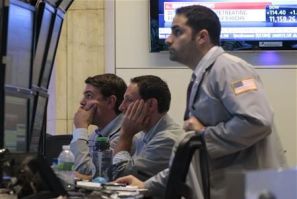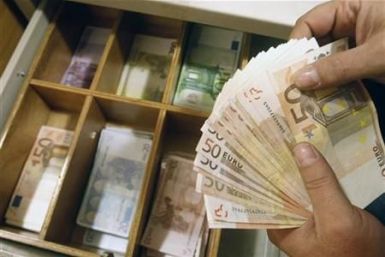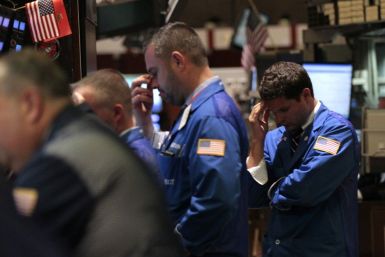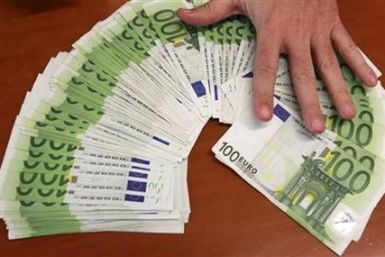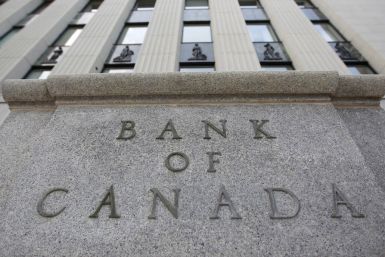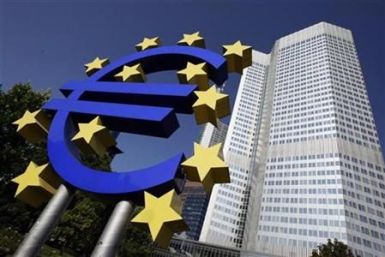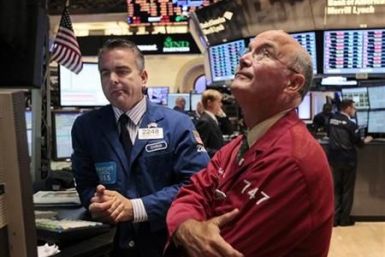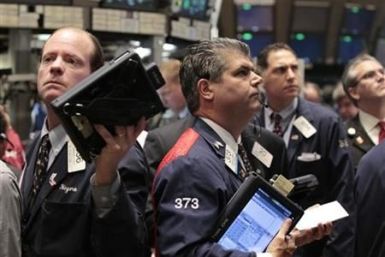Bankers are bracing for a Greek default, and their best hope is that Europe can erect firewalls around the banking system strong enough and soon enough to prevent it from spreading to other euro-zone countries.
China's economic outlook is positive, but it must keep battling inflation and be ready to counteract any external shocks, the country's top central banker said on Saturday.
The Dow Jones Industrial Average (DJIA) is on track to record a weekly decline of more than 800 points -- its worst weekly swoon in two years. But the important question for the typical investor is, 'Where's the Dow likely to head in the next six months?'
The world's major economies pledged on Thursday to prevent the euro zone's debt crisis from undermining banks and markets but announced no new specific measures to shore up confidence in the global economy.
Europe's debt crisis is the biggest threat to the global economy, the Treasury said on Wednesday, and it called on European policymakers to provide unequivocal support to banks and governments under stress.
Canada's annual inflation rate climbed to a higher-than-expected 3.1 percent in August, but analysts said on Wednesday this was unlikely to worry the Bank of Canada, which is more concerned about problems in Europe and the United States.
Canadian commercial lending rose in the second quarter, PayNet Inc said on Wednesday, in a report that showed smaller businesses we're expanding even as economic storm clouds gather in Europe and the United States.
Europe's debt crisis has increased the risk exposure of banks in the region by 300 billion euros ($410 billion) and they need to recapitalize to ensure they can weather potential losses, the International Monetary Fund said on Wednesday.
The Greek cabinet was expected to outline major public sector layoffs, more spending cuts and tax increases on Wednesday to secure a bailout installment crucial to avoid running out of money next month.
Gold jumped to its biggest gain in eight sessions on Tuesday, snapping back from steep day-ago losses as the anticipation of further U.S. stimulus mingled with new fears over global growth.
The Federal Reserve on Wednesday looks set to launch a fresh effort to invigorate the faltering U.S. recovery, embarking on what could be the first in a series of incremental steps to foster stronger growth.
Asian stocks drifted slightly lower Wednesday and the euro clawed back lost ground as investors waited for the end of a Federal Reserve policy meeting that may act to stimulate the U.S. economy.
Greece pledged to bring forward painful austerity measures on Tuesday, convincing international lenders to return to Athens early next week for talks that it hopes will secure the aid it needs to avert bankruptcy.
Gold prices rose over the $1,800 mark Tuesday on expectations that the Federal Reserve will decide this week on further steps to stimulate the economy and fresh evidence that the economy needs some stimulation.
Bank of Canada Governor Mark Carney expects the Canadian economy to grow through the rest of this year and signaled on Tuesday he stands ready to use a variety of tools and policy options to ensure stability.
Members of the conservative Swiss People's Party (SVP) want a law to prevent the country's central bank -- currently struggling to tame a super-strong Swiss franc -- from selling its gold reserves, according to a proposal published on Tuesday.
Toronto's main stock index rebounded on Tuesday, after touching a one-week low in the previous session, as bargain-hunters returned to the market and gold miners rose along with bullion prices.
Tristane Banon -- the French writer who has accused Dominique Strauss-Kahn of sexual assault -- said she will sue the former-banker if French authorities decide not to open a criminal trial.
Dominique Strauss-Kahn spoke publicly for the first time since returning to France. During an interview on French television station TF1 on Sunday night, the former head of the International Monetary Fund expressed his infinite regret over his affair with hotel maid Nafissatou Diallo in May.
U.S. stocks fell sharply on Monday as renewed fears of a Greek debt default prompted investors to book some of last week's gains and turn toward the safety of U.S. government debt.
European equity markets are again plunging in Monday trading largely on fears of a Greek default.
Stock index futures pointed to a sharply lower open on Wall Street on Monday, as renewed fears of a Greek debt default prompt investors to book some of last week's gains and turn to safer assets such as gold.




